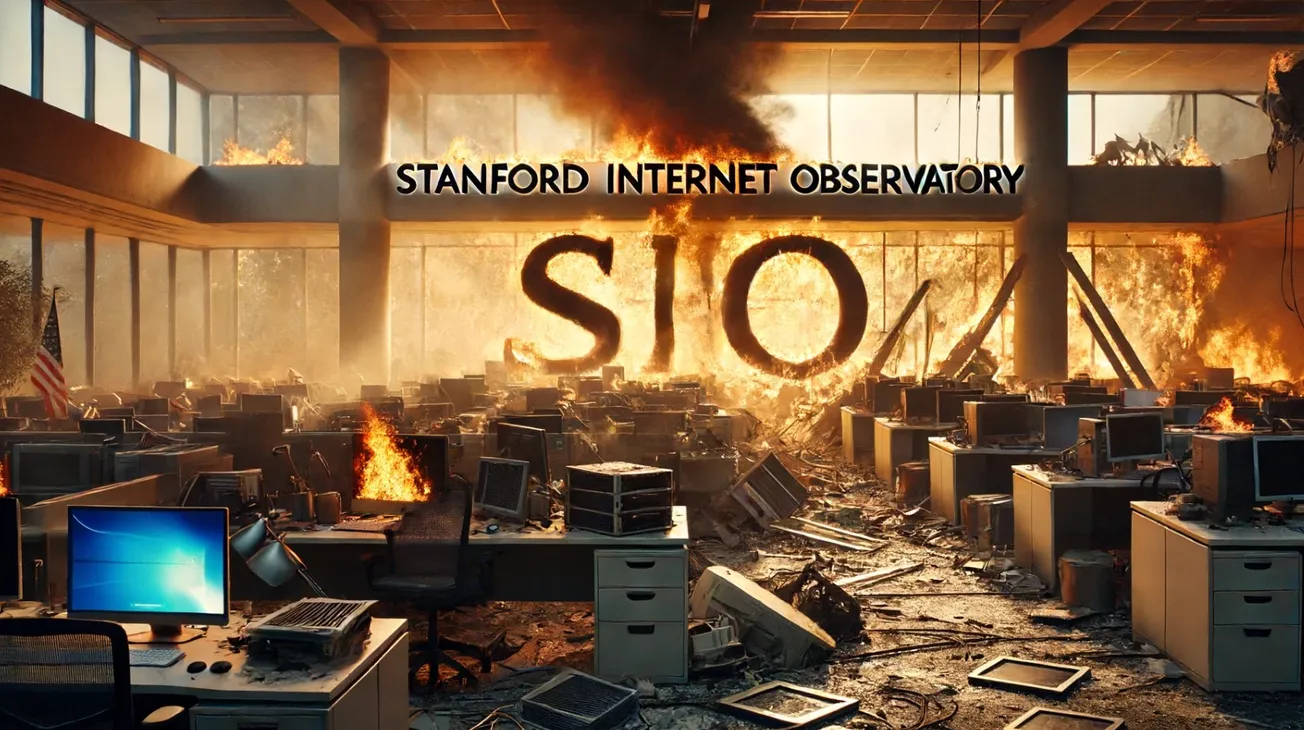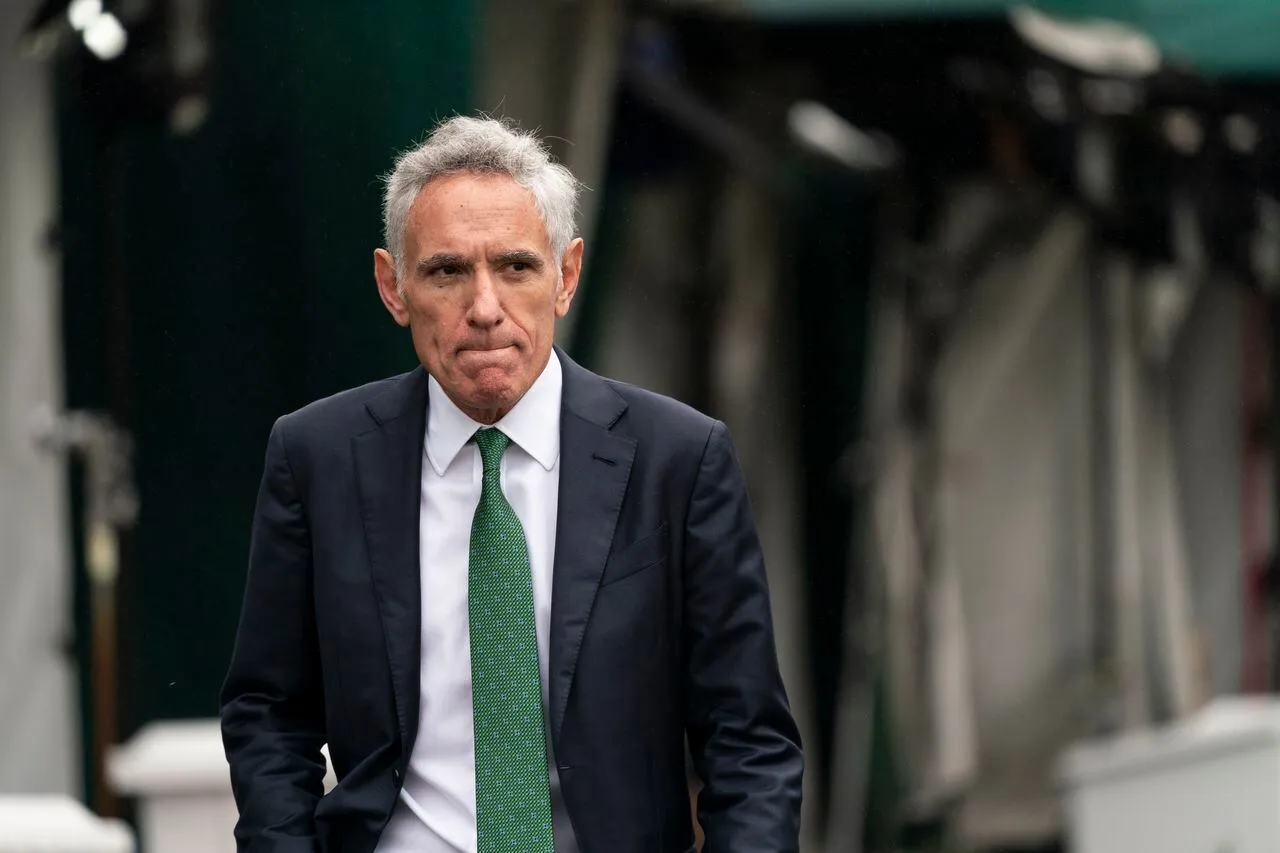Table of Contents
During the COVID-19 pandemic in 2020, Stanford University as we know it shut down. Students who were told their whole lives that nothing could replicate a college experience were sent home with little remorse. In-person research was halted. Classes went online, and rigor suffered. While Stanford pushed draconian COVID measures, a few stood up.
But for those who did stand up, Stanford cracked down and became intimately involved in the censorship of both its own members and the everyday American citizen.
Perhaps the most damning indictment of Stanford’s actions during the pandemic was that of its faculty, when in November 2020, the Stanford Faculty Senate voted to censure Dr. Scott Atlas, a Senior Fellow at the Hoover Institution. The vote wasn’t by a small margin: 85 percent of the Faculty Senate’s members voted to condemn Atlas.
Now, nearly four years later, the Faculty Senate’s policy board is reviewing a motion to rescind the Atlas censure. Provost Emeritus John Etchemendy, who supports the reversal, has admitted that “We clearly did something that we should not have done. We rushed to judgment. It was a difficult time.”
Etchemendy is correct, better late than never. The Review demands that the disgraceful censure of Dr. Atlas must finally be expunged.
This censure, now a black mark on the University, was unquestionably motivated by political animosity. Atlas, a health policy expert who worked as a professor at Stanford Medical School for fourteen years, chose to serve his country by taking an advisory role in the Trump Administration’s White House Coronavirus Task Force. As an advisor, Atlas suggested reopening schools and businesses and pushed back against draconian lockdown policies.
Debra Satz, the dean of Stanford's School of Humanities and Sciences, heartily defended the 2020 resolution to censure Atlas at the time. Though she—a political philosopher—supposedly believes in “the value of freedom of speech and freedom of inquiry,” she said that, ultimately, “there are other values at stake. As a university, we have a commitment to push back against the undermining of expertise and knowledge. That is one of the great threats to our democracy at the moment.”
Marc Tessier-Lavigne, Stanford’s former president who resigned in disgrace last year, and Condoleezza Rice, the Director of the Hoover Institution, went along with Satz’s articulation of the party line. Dr. Rice, Atlas’ employer at Hoover, stated that “The Hoover Institution does not endorse or comment on the views of its fellows.” Yet she went on to do just that, saying “Atlas’ views are inconsistent and at odds with the Hoover Institution’s adoption of county and university guidelines in terms of masks, social distancing and conducting surveillance and diagnostic testing.”
The Stanford Faculty Senate’s resolution judged Atlas as “anathema to our community, our values and our belief that we should use knowledge for good.” In other words, Atlas was summarily deemed to be unworthy of Stanford because he advocated for medical science that didn’t fit their ideological narrative and stood with the political side they didn’t like.
Make no mistake: That censure was no different from a McCarthy-era smear campaign.
The science around COVID was never definitive—certainly not in 2020. Amid great uncertainty, scientists, medical experts, and policymakers pursued different approaches to the virus and often disagreed. One-time “conspiracy theories” such as the lab-leak theory are now widely accepted. At Stanford of all places, we must remember that the scientific process is never finished, and that one set of findings should never be worshiped as a political totem. Atlas was shunned simply because he, as a scientist and physician, used his expertise to arrive at different conclusions than his peers.
As issues of academic freedom, free expression, and institutional neutrality on elite college campuses dominate headlines across the United States, Stanford must confront its shameful behavior during the pandemic. Until the University sufficiently apologizes and reverses its censure of Scott Atlas, the University will never be genuinely committed to the ideals of academic freedom that it promotes.
We demand that the Stanford Faculty Senate rescind its censure of Scott Atlas and uphold the basic values inherent in an academic institution.
For more on this subject, read the Stanford Review’s recent interview with Dr. Scott Atlas.









